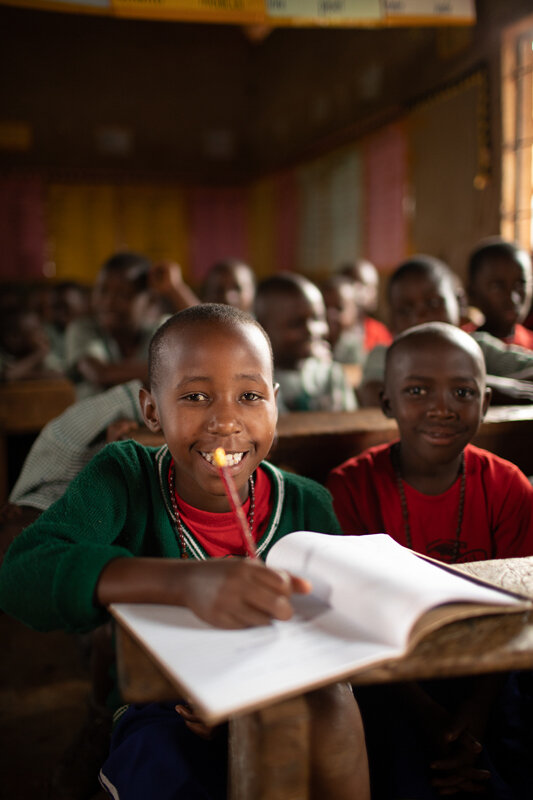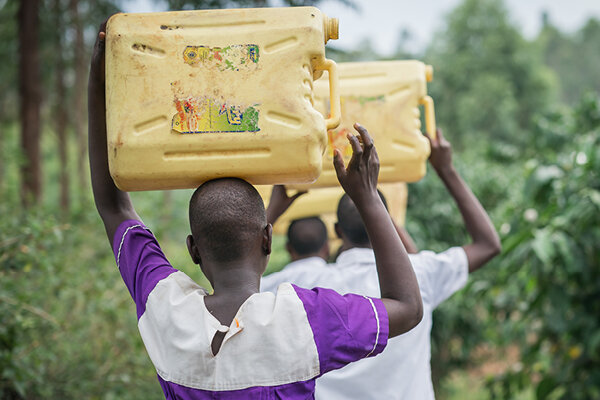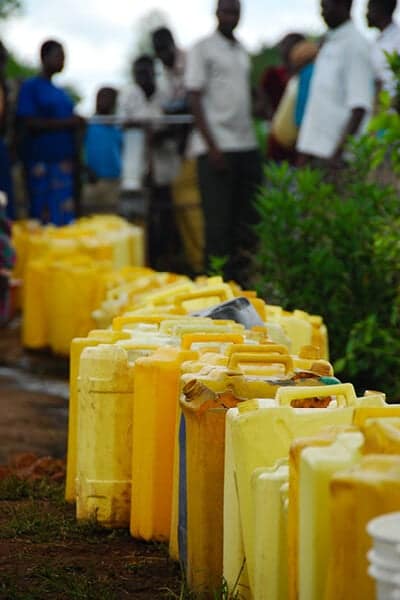Measuring Success of Water Projects in Africa
The water crisis impacts about 4 out of every 10 people globally: 2.1 billion people lack access to safely managed drinking water sources, and 4.5 billion lack well managed sanitation services.
The water crisis is especially troubling when considering those living with HIV have weakened immune systems and are thus far more vulnerable to even “minor” illnesses. It’s important to note that access to sanitation facilities and proper hygiene practices are vital to solving the water crisis, as research has shown that adequate sanitation and hygiene does more to prevent illness than access to clean water alone.
Measuring the success of our African partners’ work can be a bit complicated. Amanda, one of the members of our Africa Partnerships (AP) team, recently walked the rest of us through an overview of how our AP team works with our partners, and it was so exciting that we thought you would also enjoy learning more about it! Our partners do life-changing work, and we utilize best practices and international standards to measure not only how well we’re already doing, but how we can continue to get better.
Indicators for Water Projects
For starters, our African partners report to us quarterly on 52 unique indicators to WASH (Water, Sanitation & Hygiene) programming that give an idea of their current situation/circumstances. Additionally, we request 171 data points to accompany these indicators. Fortunately, measuring these indicators doesn’t add an extra burden to partners because tracking this sort of information is integral to how they perform outside of their work with Blood:Water.
Outputs for Water Projects
In addition to indicator reports, we also receive data on outputs from HIV and water solutions quarterly. There is no way to be sure you’re counting an individual more than once, so being accurate can be tricky. For example, the all-important question of how many people have access to water is especially challenging.
Every water point also must have a WASH committee so that the community can understand how to maintain the water point and their everyday health and sanitation. We can record how many people are in a WASH committee, but there is no way to know how many of these people tell others –their elders, their children, their neighbors, and so on– about this critical issue. So although we are always excited to see numbers about people getting clean water and learning about sanitation and hygiene, we can never honestly know how many lives are touched by this incredible work!
How We Measure Success
We use Sphere Standards for qualitative parameters. Sphere Standards give which water organizations the ability to follow a standard monitoring process to be sure that they are creating sustainable change. These standards include a requirement for every person to be able to acquire 15 L per person day and 3 L for kids at school, a distance of less than 400 m or 30 min walk including the spent waiting in line, and a maximum of 750 people served to these standards per well. These are well-rounded requirements that help truly measure change, rather than just counting the number of people who have physical access to a water point.
Boundless Change
Though we try to be as scientific as we can in monitoring how big of a difference our partners are making, the most impactful question is whether we are reducing vulnerability. We need to consider all assumptions even if we have been using them for the past 30 years, and we always want to make sure we’re getting better at serving others.
The answer isn’t as simple as identifying who is living with HIV or capable of reaching a nearby water point. Keeping track of things like distance, family members in a household, and how long someone may have to wait in line, paints a clearer picture of the sustainable, transformative work accomplished.
Just One of the Stories That Keeps Us Working
After sweeping around the new, double-door VIP toilets, one of the caregivers at Chifenthe’s preschool explains, “If a new toilet was built at this school in previous years, my body would not look like this now.” The old structure is wholly dilapidated, so she cleaned the excrement out of it every day because the children were so afraid of the large cracks and damage.
The rural Chikalema village in the Neno district of Malawi is distant from any major city center, causing it to be overlooked, and resulting in inadequate WASH facilities. At the Chifenthe preschool (located in Chikalema), attendance dropped to 50% because parents were afraid that a major disease outbreak was imminent.
Before our partner, COPRED, installed the brand new toilets, the caregiver started having trouble eating from the loss of appetite that her daily cleaning caused. If not for her love of the children, she wouldn’t have sacrificed her health. However, because of this new latrine, she says she is getting back to her normal state, feeling stronger and happier.
She also says that attendance has gotten significantly better because parents can rest assured that the children are protected from preventable disease.
COPRED also installed a borehole well, an immense improvement from the contaminated river that had been the sole nearby water source. The community is very grateful, and takes great solace in the fact that they are no longer living under the threat of disease: “If our foreparents who died some decades ago could see our village now, they would be in disbelief. For Chikalema to have a well to draw drinking water from rather than the unclean rivers is hard to believe,” the Village Headwoman declares.
“Now that we have a well, I am very confident that the community will take care of it since it is the only good source of clean and safe water… This well will save lives in my village.”
More Stories:
Categories





